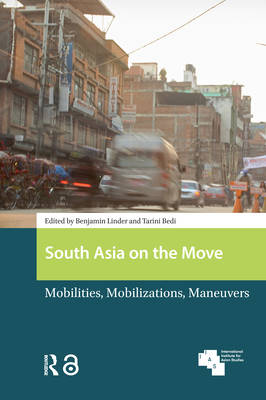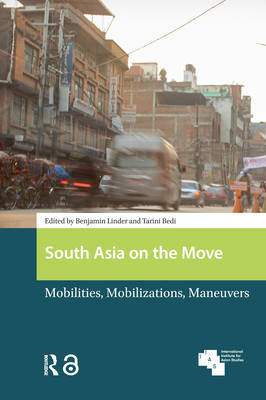
- Afhalen na 1 uur in een winkel met voorraad
- Gratis thuislevering in België vanaf € 30
- Ruim aanbod met 7 miljoen producten
- Afhalen na 1 uur in een winkel met voorraad
- Gratis thuislevering in België vanaf € 30
- Ruim aanbod met 7 miljoen producten
Omschrijving
This book sustains and expands the new mobilities paradigm by focusing such theoretical advances on South Asian scholarship. When it comes to analytical approaches to movement, the mobilities turn has been tremendously provocative, particularly in the last twenty years. However, much of that literature remains rooted in the priorities, ontologies, and geographies of the West/Global North. This volume extends earlier approaches by centering South Asia as a critical site through which scholars can advance new empirical research, develop fresh theoretical tools, diversify mobilities studies, and pose a challenge to predominant models. Through a diverse set of interdisciplinary chapters, South Asia on the Move makes a sustained argument about the value of decentering (im)mobilities research. In so doing, the collection redirects the regional, theoretical, and methodological foci of the mobilities turn, demonstrating the relevance of South Asia for thinking about varieties of movement within the region and around the world.
Specificaties
Betrokkenen
- Uitgeverij:
Inhoud
- Aantal bladzijden:
- 216
- Taal:
- Engels
- Reeks:
Eigenschappen
- Productcode (EAN):
- 9789463726498
- Verschijningsdatum:
- 16/12/2024
- Uitvoering:
- Hardcover
- Formaat:
- Genaaid
- Afmetingen:
- 162 mm x 240 mm
- Gewicht:
- 517 g

Alleen bij Standaard Boekhandel
Beoordelingen
We publiceren alleen reviews die voldoen aan de voorwaarden voor reviews. Bekijk onze voorwaarden voor reviews.








